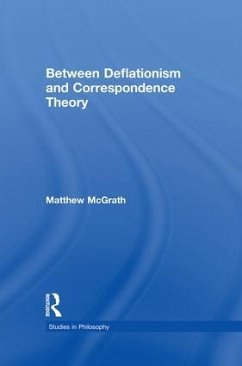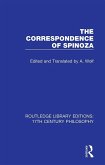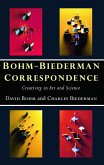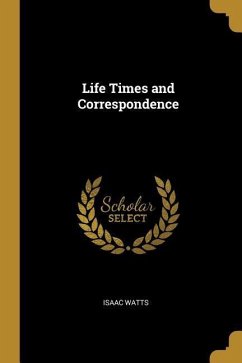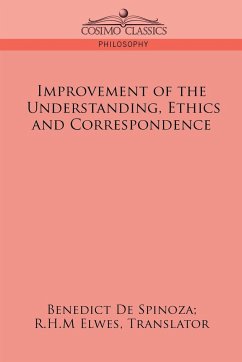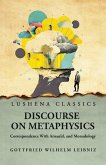Matthew McGrath
Between Deflationism and Correspondence Theory
Matthew McGrath
Between Deflationism and Correspondence Theory
- Broschiertes Buch
- Merkliste
- Auf die Merkliste
- Bewerten Bewerten
- Teilen
- Produkt teilen
- Produkterinnerung
- Produkterinnerung
McGrath argues for an original truth theory that combines elements of two well-known philosophical theories--deflationism and correspondence.
Andere Kunden interessierten sich auch für
![The Correspondence of Spinoza The Correspondence of Spinoza]() The Correspondence of Spinoza66,99 €
The Correspondence of Spinoza66,99 €![Bohm-Biederman Correspondence Bohm-Biederman Correspondence]() Charles BiedermanBohm-Biederman Correspondence74,99 €
Charles BiedermanBohm-Biederman Correspondence74,99 €![Life Times and Correspondence Life Times and Correspondence]() Isaac WattsLife Times and Correspondence34,99 €
Isaac WattsLife Times and Correspondence34,99 €![Life and Correspondence of David Hume, Volume 2 Life and Correspondence of David Hume, Volume 2]() John Hill BurtonLife and Correspondence of David Hume, Volume 225,99 €
John Hill BurtonLife and Correspondence of David Hume, Volume 225,99 €![Improvement of the Understanding, Ethics and Correspondence Improvement of the Understanding, Ethics and Correspondence]() Benedict De SpinozaImprovement of the Understanding, Ethics and Correspondence25,99 €
Benedict De SpinozaImprovement of the Understanding, Ethics and Correspondence25,99 €![Life and Correspondence of David Hume, Volume 1 Life and Correspondence of David Hume, Volume 1]() John Hill BurtonLife and Correspondence of David Hume, Volume 124,99 €
John Hill BurtonLife and Correspondence of David Hume, Volume 124,99 €![Discourse on Metaphysics Correspondence With Arnauld, and Monadology Discourse on Metaphysics Correspondence With Arnauld, and Monadology]() Gottfried Wilhelm LeibnizDiscourse on Metaphysics Correspondence With Arnauld, and Monadology26,99 €
Gottfried Wilhelm LeibnizDiscourse on Metaphysics Correspondence With Arnauld, and Monadology26,99 €-
-
-
McGrath argues for an original truth theory that combines elements of two well-known philosophical theories--deflationism and correspondence.
Produktdetails
- Produktdetails
- Verlag: Routledge
- Seitenzahl: 152
- Erscheinungstermin: 23. Juni 2015
- Englisch
- Abmessung: 229mm x 152mm x 8mm
- Gewicht: 231g
- ISBN-13: 9781138865556
- ISBN-10: 1138865559
- Artikelnr.: 42786925
- Herstellerkennzeichnung
- Libri GmbH
- Europaallee 1
- 36244 Bad Hersfeld
- gpsr@libri.de
- Verlag: Routledge
- Seitenzahl: 152
- Erscheinungstermin: 23. Juni 2015
- Englisch
- Abmessung: 229mm x 152mm x 8mm
- Gewicht: 231g
- ISBN-13: 9781138865556
- ISBN-10: 1138865559
- Artikelnr.: 42786925
- Herstellerkennzeichnung
- Libri GmbH
- Europaallee 1
- 36244 Bad Hersfeld
- gpsr@libri.de
Matthew McGrath is Assistant Professor of Philosophy at Texas A&M University.
Preface
1. Realism about Propositions and Properties
I. Introduction
II. Ontological Commitment
III. Are Properties and Contents on a Par with Sakes and Average Persons?
IV. Ackerman's Triviality Charge
V. Properties and Concepts? Propositions and States of Affairs?
2. Deflationism Rejected, Weak Deflationism Presented
3. Questions for Weak Deflationism
I. Is Weak Deflationism Circular?
II. Why Shouldn't One Seek a Correspondence Theory of Propositional Truth?
III. Does Weak Deflationism Stumble on the Explanation of General Facts Involving Truth?
IV. Does Weak Deflationism Have the Resources to Explain the Obviousness of Propositions Expressed by Instances of the Schema 'p' is true if p?
V. Can the Weak Deflationism Can the Weak Deflationism Answer the Standard Objection to Correspondence Theories that if Truth Consisted in Correspondence with the Facts, Knowing Something is True would Require an Absurd Comparison Between Sentences (Utterances, Beliefs) and Facts?
VI. Is Weak Deflationism Incompatible with Non-Factualist Theories of Certain Areas of Declarative Discourse, e.g., Moral Discourse?
VII. Why Can't We Use Higher-Order Quantification to Formulate Deflationism about Propositional Truth as a Universalized Biconditional?
4. A Challenge from David Lewis
I. First Part of the Challenge
II. Second Part of the Challenge
5. Truthmaking
I. Question 1: Does Pursuit of the Truthmaker Project Require Acceptance of a Correspondence Theory of Truth Rather than a Deflationist Theory?
II. Question 2: Is There Good Reason to Think the Truthmaker Project will be fruitful?
III. Truthmaking without the Truthmaker Project
6. The Liar Paradox
I. Illustrations of Supervenience
II. Categorial Preliminaries
III. An (Almost) General Account of Truth
IV. A Dilemma?
V. Comparison with Kripke's Account
Bibliography
1. Realism about Propositions and Properties
I. Introduction
II. Ontological Commitment
III. Are Properties and Contents on a Par with Sakes and Average Persons?
IV. Ackerman's Triviality Charge
V. Properties and Concepts? Propositions and States of Affairs?
2. Deflationism Rejected, Weak Deflationism Presented
3. Questions for Weak Deflationism
I. Is Weak Deflationism Circular?
II. Why Shouldn't One Seek a Correspondence Theory of Propositional Truth?
III. Does Weak Deflationism Stumble on the Explanation of General Facts Involving Truth?
IV. Does Weak Deflationism Have the Resources to Explain the Obviousness of Propositions Expressed by Instances of the Schema 'p' is true if p?
V. Can the Weak Deflationism Can the Weak Deflationism Answer the Standard Objection to Correspondence Theories that if Truth Consisted in Correspondence with the Facts, Knowing Something is True would Require an Absurd Comparison Between Sentences (Utterances, Beliefs) and Facts?
VI. Is Weak Deflationism Incompatible with Non-Factualist Theories of Certain Areas of Declarative Discourse, e.g., Moral Discourse?
VII. Why Can't We Use Higher-Order Quantification to Formulate Deflationism about Propositional Truth as a Universalized Biconditional?
4. A Challenge from David Lewis
I. First Part of the Challenge
II. Second Part of the Challenge
5. Truthmaking
I. Question 1: Does Pursuit of the Truthmaker Project Require Acceptance of a Correspondence Theory of Truth Rather than a Deflationist Theory?
II. Question 2: Is There Good Reason to Think the Truthmaker Project will be fruitful?
III. Truthmaking without the Truthmaker Project
6. The Liar Paradox
I. Illustrations of Supervenience
II. Categorial Preliminaries
III. An (Almost) General Account of Truth
IV. A Dilemma?
V. Comparison with Kripke's Account
Bibliography
Preface
1. Realism about Propositions and Properties
I. Introduction
II. Ontological Commitment
III. Are Properties and Contents on a Par with Sakes and Average Persons?
IV. Ackerman's Triviality Charge
V. Properties and Concepts? Propositions and States of Affairs?
2. Deflationism Rejected, Weak Deflationism Presented
3. Questions for Weak Deflationism
I. Is Weak Deflationism Circular?
II. Why Shouldn't One Seek a Correspondence Theory of Propositional Truth?
III. Does Weak Deflationism Stumble on the Explanation of General Facts Involving Truth?
IV. Does Weak Deflationism Have the Resources to Explain the Obviousness of Propositions Expressed by Instances of the Schema 'p' is true if p?
V. Can the Weak Deflationism Can the Weak Deflationism Answer the Standard Objection to Correspondence Theories that if Truth Consisted in Correspondence with the Facts, Knowing Something is True would Require an Absurd Comparison Between Sentences (Utterances, Beliefs) and Facts?
VI. Is Weak Deflationism Incompatible with Non-Factualist Theories of Certain Areas of Declarative Discourse, e.g., Moral Discourse?
VII. Why Can't We Use Higher-Order Quantification to Formulate Deflationism about Propositional Truth as a Universalized Biconditional?
4. A Challenge from David Lewis
I. First Part of the Challenge
II. Second Part of the Challenge
5. Truthmaking
I. Question 1: Does Pursuit of the Truthmaker Project Require Acceptance of a Correspondence Theory of Truth Rather than a Deflationist Theory?
II. Question 2: Is There Good Reason to Think the Truthmaker Project will be fruitful?
III. Truthmaking without the Truthmaker Project
6. The Liar Paradox
I. Illustrations of Supervenience
II. Categorial Preliminaries
III. An (Almost) General Account of Truth
IV. A Dilemma?
V. Comparison with Kripke's Account
Bibliography
1. Realism about Propositions and Properties
I. Introduction
II. Ontological Commitment
III. Are Properties and Contents on a Par with Sakes and Average Persons?
IV. Ackerman's Triviality Charge
V. Properties and Concepts? Propositions and States of Affairs?
2. Deflationism Rejected, Weak Deflationism Presented
3. Questions for Weak Deflationism
I. Is Weak Deflationism Circular?
II. Why Shouldn't One Seek a Correspondence Theory of Propositional Truth?
III. Does Weak Deflationism Stumble on the Explanation of General Facts Involving Truth?
IV. Does Weak Deflationism Have the Resources to Explain the Obviousness of Propositions Expressed by Instances of the Schema 'p' is true if p?
V. Can the Weak Deflationism Can the Weak Deflationism Answer the Standard Objection to Correspondence Theories that if Truth Consisted in Correspondence with the Facts, Knowing Something is True would Require an Absurd Comparison Between Sentences (Utterances, Beliefs) and Facts?
VI. Is Weak Deflationism Incompatible with Non-Factualist Theories of Certain Areas of Declarative Discourse, e.g., Moral Discourse?
VII. Why Can't We Use Higher-Order Quantification to Formulate Deflationism about Propositional Truth as a Universalized Biconditional?
4. A Challenge from David Lewis
I. First Part of the Challenge
II. Second Part of the Challenge
5. Truthmaking
I. Question 1: Does Pursuit of the Truthmaker Project Require Acceptance of a Correspondence Theory of Truth Rather than a Deflationist Theory?
II. Question 2: Is There Good Reason to Think the Truthmaker Project will be fruitful?
III. Truthmaking without the Truthmaker Project
6. The Liar Paradox
I. Illustrations of Supervenience
II. Categorial Preliminaries
III. An (Almost) General Account of Truth
IV. A Dilemma?
V. Comparison with Kripke's Account
Bibliography

